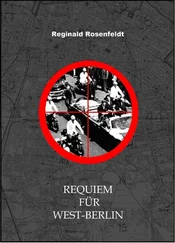Isaiah Berlin - Russian Thinkers
Здесь есть возможность читать онлайн «Isaiah Berlin - Russian Thinkers» весь текст электронной книги совершенно бесплатно (целиком полную версию без сокращений). В некоторых случаях можно слушать аудио, скачать через торрент в формате fb2 и присутствует краткое содержание. Год выпуска: 0101, Жанр: Старинная литература, на русском языке. Описание произведения, (предисловие) а так же отзывы посетителей доступны на портале библиотеки ЛибКат.
- Название:Russian Thinkers
- Автор:
- Жанр:
- Год:0101
- ISBN:нет данных
- Рейтинг книги:3 / 5. Голосов: 1
-
Избранное:Добавить в избранное
- Отзывы:
-
Ваша оценка:
- 60
- 1
- 2
- 3
- 4
- 5
Russian Thinkers: краткое содержание, описание и аннотация
Предлагаем к чтению аннотацию, описание, краткое содержание или предисловие (зависит от того, что написал сам автор книги «Russian Thinkers»). Если вы не нашли необходимую информацию о книге — напишите в комментариях, мы постараемся отыскать её.
Russian Thinkers — читать онлайн бесплатно полную книгу (весь текст) целиком
Ниже представлен текст книги, разбитый по страницам. Система сохранения места последней прочитанной страницы, позволяет с удобством читать онлайн бесплатно книгу «Russian Thinkers», без необходимости каждый раз заново искать на чём Вы остановились. Поставьте закладку, и сможете в любой момент перейти на страницу, на которой закончили чтение.
Интервал:
Закладка:
sculptor Shubin or the historian Bersenev, but, unlike them, is possessed by a single thought-to liberate his country from the Turk, a simple dominant purpose that unites him with the last peasant and the
last beggar in his land. Elena goes with him because he alone, in her
world, is whole and unbroken, because his ideals are backed by
indomitable moral strength.
Turgenev published On the Eve in the CDntnnpDrary (Sovremmnik),
a radical journal then moving steadily and rapidly to the left. The
group of men who dominated it were as uncongenial to him as they
were to Tolstoy; he thought them dull, narrow doctrinaires, devoid of
all understanding of art, enemies of beauty, uninterested in personal
relationships (which were everything to him), but they were bold
and strong, fanatics who judged everything in the light of a single
goal-the liberation of the Russian people. They rejected compromise:
they were bent on a radical solution. The emancipation of the serfs,
which moved Turgenev and all his liberal friends profoundly, was to
these men not the beginning of a new era, but a miserable fraud : the
peasants were still chained to their landlords by the new economic
arrangements. Only the 'peasant's axe', a mass rising of the people
in arms, would give it freedom. Dobrolyubov, the literary editor of
the magazine, in his review of On the Eve, acclaimed the Bulgarian
as a positive hero: for he was ready to give his life to drive out the
Turk from his country. And we? We Russians, too (he declared),
have our Turks-only they are internal: the court, the gentry, the
generals, the ofli.cials, the rising bourgeoisie, oppressors and exploiters
whose weapons are the ignorance of the masses and brute force. Where
,,
:173
R U S S IAN T H I N K E R S
are our lnsarovs? Turgenev speaks of an eve; when will the real day
dawn? If it has not dawned yet, this is because the good, the enlightened
young men, the Shubins and Bersenevs in Turgenev's novel, are
impotent. They are paralysed, and will, for all their fine words, end
by adapting themselves to the conventions of the philistine life of their
society, because they are too closely connected with the prevailing
order by a network of family and institutional and economic relationships which they cannot bring themselves to break entirely. 'If you sit in an empty box', said Dobrolyubov, in the final version of his
article, 'and try to upset it with yourself inside it, what a fearful effort
you have to make ! But if you come at it from outside, one push will
topple this box.'1 Insarov stood outside his box-the box is the Turkish
invader. Those who are truly serious must get out of the Russian box,
break off every relationship with the entire monstrous structure, and
then knock it over from outside. Herzen and Ogarev sit in London
and waste their time in exposing isolated cases of injustice, corruption
or mismanagement in the Russian Empire; but this, so far from
weakening that empire, may even help it to eliminate such shortcomings and last longer. The real task is to destroy the whole inhuman system. Dobrolyubov's advice is clear: those who are serious must
endeavour to abandon the box-remove themselves from all contact
with the Russian state as it is at present, for there is no other means
to acquire an Archimedean point, leverage for causing it to collapse.
lnsarov rightly lets private revenge-the execution of those who
tortured and killed his parents-wait until the larger task is accomplished. There must be no waste of energy on piecemeal denunciations, on the rescue of individuals from cruelty or injustice. This is mere liberal fiddling, escape from the radical task. There is nothing
common between 'us' and 'them'. 'They', and Turgenev with them,
seek reform, accommodation.'We' want destruction, revolution, new
foundations of life; nothing else will destroy the reign of darkness.
This, for the radicals, is the clear implication of Turgenev's novel;
but he and his friends are evidently too craven to draw it.
Turgenev was upset and, indeed, frightened by this interpretation
of his book. He tried to get the review withdrawn. He said that if it
1 This sentence does not occur in the original review of r 86o, but wu
included in the posthumous edition of Dobrolyubov's essays two years later.
See 'Kogda zhe pridet nastoyashchii den'l' 8o6rtJ•it sotll;.,,;;, vol. 6
(Moscow, 1963), p. r :z6.
274

FATHERS AND C H ILDREN
appeared he would not know what to do or where to run. Nevertheless
he was fascinated by these new men. He loathed the gloomy puritanism
of these 'Daniels of the Neva', as they were called by Herzen,l who
thought them cynical and brutal and could not bear their crude antiaesthetic utilitarianism, their fanatical rejection of all that he held dear-liberal culture, art, civilised human relationships. But they were
young, brave, ready to die in the fight against the common enemy,
the reactionaries, the police, the state. Turgenev wished, in spite of
everything, to be liked and respected by them. He tried to flirt with
Dobrolyubov, and constantly engaged him in conversation. One day,
when they met in the offices of the Contemporary, Dobrolyubov
suddenly said to him, 'Ivan Sergeevich, do not let us go on talking to
each other: it bores me,'1 and walked away to a distant corner of the
room. Turgenev did not give up immediately. He was a celebrated
charmer; he did his best to find a way to woo the grim young man.
It was of no use; when he saw Turgenev approach he stared at the
wall or pointedly left the room. 'You can talk to Turgenev if you
like,' Dobrolyubov said to his fellow editor Chernyshevsky, who at
this time still looked with favour and admiration on Turgenev, and
he added, characteristically, that in his view bad allies were no allies.•
This is worthy of Lenin; Dobrolyubov had, perhaps, the most
Bolshevik temperament of all the early radicals. Turgenev in the
t Ssos and early 6os was the most famous writer in Russia, the only
Russian writer with a great and growing European reputation. Nobody
had ever treated him like this. He was deeply wounded. Nevertheless,
he persisted for a while, but in the end, faced with Dobrolyubov's
implacable hostility, gave up. There was an open breach. He crossed
over to the conservative review edited by Mikhail Katkov, a man
regarded by the left wing as their deadliest enemy.
In the meanwhile the political atmosphere grew more stormy. The
terrorist Land and Liberty League was created in 1 86 1 , the very year
of the great emancipation. Violently worded manifestos calling on the
peasants to revolt began to circulate. The radical leaders were charged
1 A. I. Herzen, So6r11nit socAinenii, vol. 14, p. 322.
I N. G. Chemyshevaky's reminiscences quoted in /. 8. TurgtfltrJ Cl e�ospominllniylllA JOCirtmtnflilw (Moscow, 196o), vol. I, p. 356. This story was recorded by Chemyshevaky in J884, many years after the event, at the
request of his cousin Pypin, who was collecting material about the radical
movement of the 6os; there is no reason for doubting its accuracy.
I ibid., p. ] 5 8.
275

R U SSIAN THINKERS
with conspiracy, were imprisoned or exiled. Fires broke out in the
capital and university students were accused of starting them; Turgenev did not come to their defence. The booing and whistling of the radicals, their brutal mockery, seemed to him mere vandalism; their
Читать дальшеИнтервал:
Закладка:
Похожие книги на «Russian Thinkers»
Представляем Вашему вниманию похожие книги на «Russian Thinkers» списком для выбора. Мы отобрали схожую по названию и смыслу литературу в надежде предоставить читателям больше вариантов отыскать новые, интересные, ещё непрочитанные произведения.
Обсуждение, отзывы о книге «Russian Thinkers» и просто собственные мнения читателей. Оставьте ваши комментарии, напишите, что Вы думаете о произведении, его смысле или главных героях. Укажите что конкретно понравилось, а что нет, и почему Вы так считаете.










